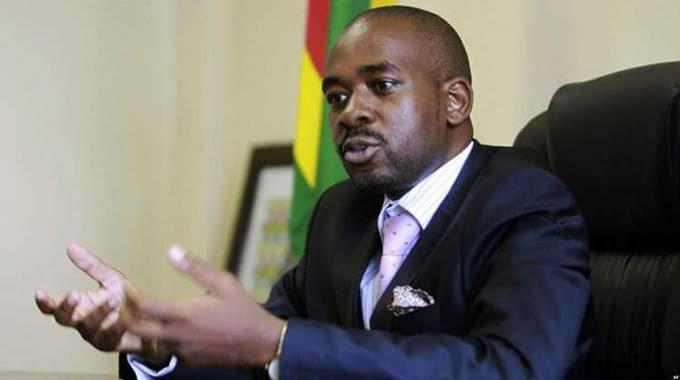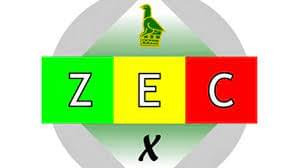LOVERS of English Literature will recall “The Comedy of Errors”- a play by William Shakespeare that was first published and performed in 1594.
It is a five-act farce about two sets of identical twins who were separated shortly after birth. It’s a farce kind of comedy that relies on slapstick, puns, and wordplay for humour. It tells the story of two sets of twins who experience a great deal of mistaken identity, causing confusion among themselves and other people.
Set in the Greek city of Ephesus, “The Comedy of Errors” tells the story of two sets of identical twins- Antipholus of Syracuse and his servant, Dromio who arrive in Ephesus, which turns out to be the home of their twin brothers, Antipholus and his servant Dromio of Ephesus.
The Syracusans encounter the friends and families of their twins and thereafter a series of wild mishaps based on mistaken identities lead to wrongful beatings, the arrest of Antipholus of Ephesus, false accusations, theft, madness and demonic possession.
While “The Comedy of Errors” has an amicable end, the circus in the CCC appears to be a never ending burlesque.
Reading “The Comedy of Errors”, one gets the sense that Shakespeare might have written this play with a futuristic prediction of what was to play out in Zimbabwe in the run-up to the 2023 country’s harmonised elections.
Written some centuries ago in a different cultural and political setup, the Shakespearean play aptly testifies the adage of literature crossing small boundaries of time and place.
One cannot help but draw similarities between what happens in the play and what obtains in Zimbabwe’s opposition party, the CCC, led by Nelson Chamisa. Just like the CCC, “The Comedy of Errors” is filled with mistaken identity and is told in a way that makes the whole play seem so ridiculous that one cannot help but laugh. In the play, the mistaken identities of the sets of twins could have been avoided had they been named properly.
Similarly, there is a lot of mistaken identity in the selection and nomination of candidates in the CCC.
All sorts of accusations are flying, some leaning on the absurd. And as always, the party’s leader and spokesperson point fingers at perceived opponents and never at themselves.
In the run-up to the 23 August elections, Chamisa shocked everyone by crafting an oxymoronic phrase he called “strategic ambiguity”, which he probably thought evoked some kind of sophistication when in actual fact it clearly signified hollowness when put to test.
“Strategic ambiguity” will surely linger beyond the elections as an irrational anecdote exemplifying an individual given to histrionics and lacking substance. In literature, “strategic ambiguity” is an oxymoron- a simple figure of speech that expresses the paradoxes of life but does not denote any deeper or substantive meaning.
It’s the same as saying “pretty ugly” or “falsely true”. It works simply as an emphasis figure of speech.
Putting strategic and ambiguity in the same sentence is oxymoronic because the two words are incongruent.
One cannot be strategic/tactical in an ambiguous/opaque manner. It’s just obnoxious that someone thinks it represents a smart political move. Chamisa probably simply liked the way the phrase sounds without any regard to its nonsensical import.
If the intention was to appear erudite, then the developments that outplayed in his party during
“selection” of candidates and the nomination exercise clearly proved that far from erudition, the words were just hollow. No wonder none in his party ever use the phrase because they know it is senseless and oxymoronic.
It is becoming a real circus. According to Chamisa, strategic ambiguity meant withholding until last minute names of so-called successful candidates. The idea, he said, was to avoid infiltration, double candidates and independent filling of nomination papers by disgruntled members. It became clear that the so-called masterplan wasn’t strategic after all. Names were not released earlier because the plan was to impose favoured candidates.
While the CCC claims to be a democratic alternative, it failed to exercise internal democracy by failing to hold a transparent primary election and aggrieved aspiring candidates had no recourse as they were all labelled “frauds” or infiltrators.
And now its spokesperson, Fadzayi Mahere, is attempting to deflect blameworthiness by claiming a sinister agenda because all the disgruntled members are being represented by one lawyer. There is no mention of the glaring incompetence of presenting nomination papers well beyond the cutoff time particularly in Bulawayo.
Just like in “The Comedy of Errors”, there are four types of systematic errors that have so far manifested in the cauldron of the CCC. There is observational, instrumental, environmental and theoretical.
Observational errors occur when one makes an incorrect observation, misreads an instrument that ultimately gives a wrong reading. The opposition party seems to be suffering from its own propaganda of believing that they can hoodwink everyone by masking their apparent follies. But like all comedies, there are ugly scenes that embarrassingly reveal sordid behind the scenes. It is these scenes that manifest in public glare as confusion, betrayal, idiocy, crazed feelings of distrust and a desperate desire to centralize power.
In “The Comedy of Errors” Shakespeare reveals frustration, confusion, suspicion and flat out lunacy. Truth be told, we are witnessing a “comedy of errors” and its victims (CCC members) appear hapless, misinformed and zealous. Chamisa says very ridiculous stuff which in a normal organization would solicit a vote of no confidence. But without a Constitution or structures, he gets away with it- calling his own supporters “stupid” or saying that his party’s focus is not on parliamentary but presidential elections. It is a genuine comedy in which we witness a great deal of slapstick and we watch in awe at the ridiculousness of the whole improbable set of events whose unravelling lead to an inevitable crashing defeat on August 23.
In a very real sense, Chamisa has succeeded in “emasculating” his own members who now appear like comic commodities or figures of fun.
No one dares speak unless consented by him. Everyone feels indebted because he is the sole approver of nomination papers. There is comic confusion, farcically endless implausibility, loss of freedom and loss of identity- all coming together as a caricature of some sort.










